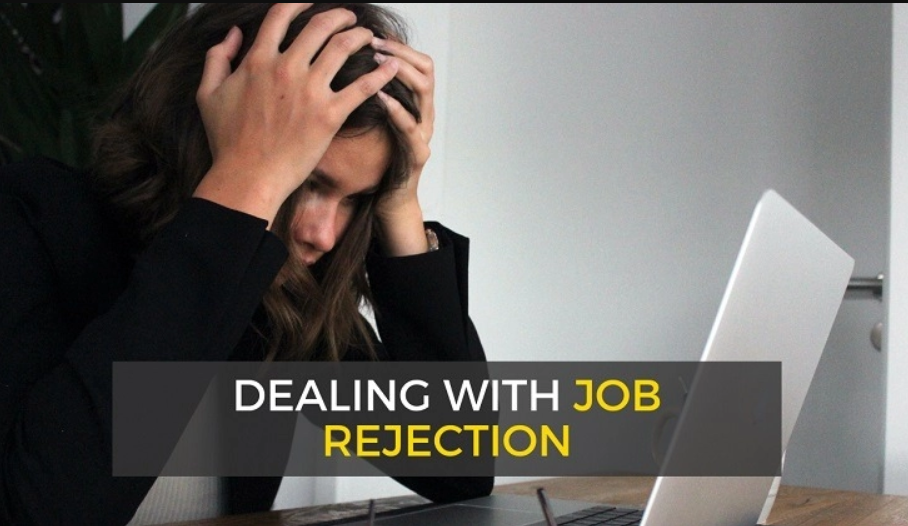Your Full Guide On How To Handle Job Rejection
By Predictive Success |
5.4 min read

One of the inevitable truths in life is that you will probably have to deal with job rejections at some point in your life. Job interview rejections sting even harder when you’ve put in long hours of preparation for the job interview and believe you’ve aced it afterward.
We all have a point when we realize, “I just got rejected from a job I really wanted”. However, not everyone reacts to it the same way. Learning how to handle job rejection can actually help you turn your narrative around and let your job interview rejection become a positive turning point in your career.
Here are some strategies to help you bounce back from your job rejection more quickly and come back even stronger than before.
1. Ask for feedback after your job rejection
After a job interview rejection, it’s normal to feel paralyzed by self-doubt. Soon after your job rejection, you’ll find lingering questions: Did I mess up the interview? Am I not good enough? Am I under-qualified for this job role?
These answers could be answered by a simple inquiry to your manager: Why was I rejected from this job?
Asking for feedback isn’t about trying to persuade them to rethink their decision, but all about developing yourself, learning what you could alter for your next interviews, or what you should consider adding to your resume going forward.
2. Don’t take your job rejection personal
Asking for feedback is essential when you’re learning how to handle a job rejection because sometimes it has nothing to do about you or your interview.
In some cases, your job interview rejection might have other reasons out of your control, including:
- The company might have realized they didn’t need the role after all
- The role is now unavailable due to internal hire or internal promotion
- The role’s tasks were broken down and distributed among existing employees
- The company went with a referral
Dealing with job rejection is a lot easier once you’ve learned that it has nothing to do with your skills and expertise!
3. Reflect on the given feedback
Of course, it’s a lot easier to deal with job rejection if the problem wasn’t about you. However, that’s not always the case.
Perhaps you were the most qualified candidate, but the interviewer didn’t feel that you fit their company’s culture or maybe you weren’t that qualified and you lacked a certain skill set.
It goes without saying that after receiving a job rejection, asking for feedback might help light a bulb in your head and make you aware of something you didn’t know.
Some of the most brutally honest feedback you’ll receive in your career will come from the interviewer or hiring manager who made the decision regarding your job rejection. They truly have nothing to lose by being brutally honest with you, so it’s critical to consider all feedback and really put it into consideration, regardless of its nature.
4. Take the time to appreciate your strengths
Regardless of the nature of the company’s feedback and whether they included some positive points or not, make sure you remind yourself of your strengths anyway.
One of the most important points of learning how to handle rejection from a job is learning how to not let it lead to self-doubt.
For example, if you received a job rejection because you lack the years of experience needed, remind yourself that you still managed to land an interview despite that specific criteria. Perhaps the job interview rejection came because you didn’t have a certain set of skills they were looking for, but you probably have another skill that they didn’t consider!
5. Reconsider the job role
“I got rejected from a job I was perfect for”, but what if you weren’t?
Sometimes, the hardest pill to swallow is that if you keep receiving job rejections for a certain job role, then maybe you need to refine your job search.
However, this is something only you can say for sure after reflecting on your job interview rejection and its feedback.
On learning how to handle job rejection through reflection, you can meet the realization that maybe your strengths don’t match the ones needed for that role, or maybe your character and values don’t align with the type of companies you’ve been receiving job rejections from. Perhaps, the job role demands a certain set of skills that you don’t have and are not willing to put the time to gain.
It’s important to point out that reconsidering your job role isn’t equivalent to giving up. However, dealing with job rejection with this mindset can help guide you to another role that would make a better fit for you.
6. Give yourself time to regroup
There’s a sense of desperation that might come when you’re dealing with job rejection. Sometimes, a job rejection might damage your self-image and drive you into accepting whatever job you can land first.
People have different ways of dealing with job rejection. Some quit the process altogether and others are even more driven to find any job as soon as possible after their job interview rejection.
Although it seems contradictory, the best way to handle job rejection is to take time and to think about approaching the application process with extra caution and patience. This entails waiting before applying for your next opportunity so you have time to reflect on why these job rejections happened in the first place.
The small break will only help you show yourself in the best possible light when you return.
7. Bounce back stronger after job rejection
If you learn how to handle job rejection correctly and manage to go through these steps then you’re preparing yourself for a professional glow-up and ready to come back to the job hunt more prepared than ever.
After you’ve taken the time to accept your feelings, work on your areas of deficiencies, acknowledge your strengths and learn how to showcase them, you’ll be more inspired to come back even stronger than you were before your job rejection.
Of course, it’s not easy to handle rejection from a job you really wanted. However, No matter how angry, upset, or caught off guard you were once you received your job interview rejection, what you do after it can help turn your story around.
Related Blogs
How to Develop Essential Leadership Skills
In recent years the way we work has changed and with that comes a change to leadership. The COVID-19 pandemic made a profound impact on the work environment with an increase in people working from
The Year-End Talent Playbook: Setting Your Workforce Up for Success in 2025
Success in 2025 starts with the decisions you make today. The workforce landscape is rapidly evolving, and organizations must be proactive in aligning their talent strategies with future business goals. The year-end period offers an
Innovative Hiring Tools: Transforming Your Recruitment Process
Recruitment is no longer just about filling open positions; it’s about finding the right people whose skills and personalities align with both the demands of the role and the culture of the organization. Traditional hiring


